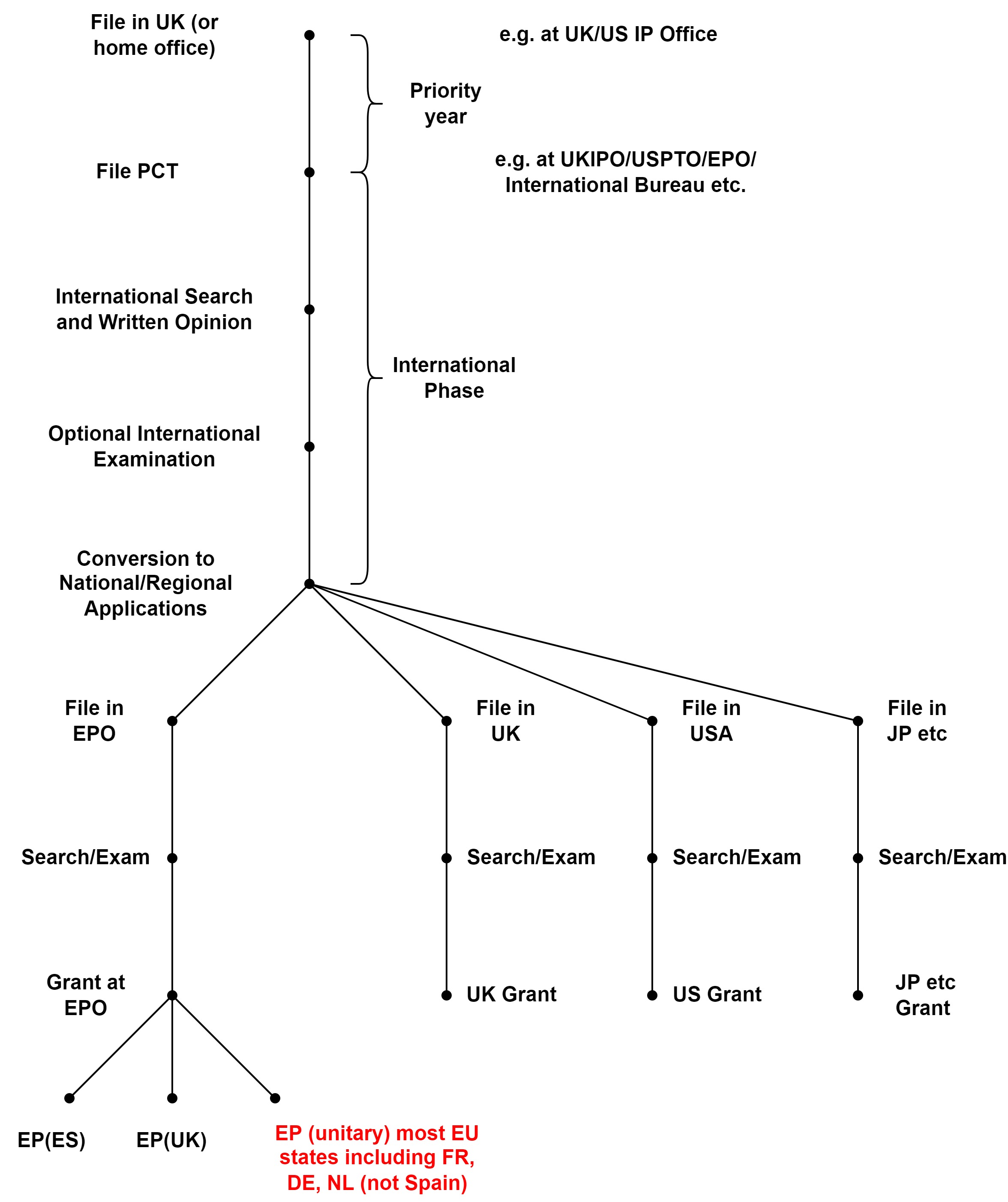To UPC or not to UPC?
Posted on
To UPC or not to UPC? That is the question.
The European Union’s (EU) Unitary Patent and its Unified Patent Court (UPC) are to start on 1 June 2023.
The EU and the European Patent Office (EPO) are separate entities embarking together on this new venture. Once an EP application is granted an EU Unitary Patent can be elected. The EPO’s patent granting process is unaffected. What granted before will grant after.
The UPC adds an option to choose a single ‘Unitary Patent’ in EU Member States signed up at the time of EP grant, in the same way you might validate an EP patent in individual countries to obtain a bundle of EP patents.
To explain, upon EP grant, patentees will have an additional choice of electing an EP patent with unitary effect known as a Unitary Patent.
As you get your head around this complex, potentially useful monster, here are some practical points:
- A request for a Unitary Patent is due within 1 month of EP grant.
- If in English, a full translation into an EU language is also required. This is more costly if you normally select countries that use the London Agreement and which have therefore dispensed with translations or only require translations of the claims.
- Unitary Patent renewal fees start from €35 and rise to €4855 in year 20 and EU countries cannot be dropped (it is a unitary right, all in or all out).
- If selecting 4 or fewer states for EP validation, renewal costs over 20 years will be more for a Unitary Patent, but for the first ten years, the Unitary Patent may be cheaper.
- If selecting 5 or more states the Unitary Patent renewal costs may be cheaper.
- If a UP is litigated, this will be in a single court, the EU’s Unified Patent Court.
- All EP patents, no matter when granted, and all pending and new EP applications will be subject to the exclusive jurisdiction of the EU’s Unified Patent Court unless opted out.
- Opt-outs to the exclusive jurisdiction of the UPC for EP patents can be filed in the 3-month sunrise period running up to the start of the UPC – so starting 1 March 2023.
Transitional Arrangements to Consider Now
In the 3 months leading up to the UPC , the EPO will accept pre-grant:
- a request for a delay in issuing the decision to grant a European patent, to allow the UPC to come into force
- an early separate request for unitary effect of the European patent
These options are only available if a R71(3) communication has been issued but the text has not yet been approved by the applicant.
Creation of a delay
If a Rule 71(3) Notification of Intention to Grant is received, a response could be filed which disapproves the text with amendments to create a delay. A new Rule 71(3) should then be received setting a new four-month deadline to respond.
Or an EP application could also be allowed to lapse and reinstated as of right.
At the time of writing, either or both may buy enough time to allow the EPO’s transitional arrangements to come into force to then allow your clients to request a delay of the mention of grant and elect to obtain a Unitary Patent. But these steps create a slight risk and add some additional cost.
To UPC or not to UPC? The decision points are fast approaching like a monster rising from the depths of Loch Ness. Is it friend or foe?

For our US, AU and CN colleagues, keep this handy guide by your desk for when your clients ask questions and please connect with me for further updates and practical tips.
The team at Capella IP are here to make your job easier. Get in touch for more information and keep a look out for our next update.
This brief guide is intended as an introduction to the UPC and not legal advice. For your particular circumstances, and legal advice, please get in touch.
© Capella IP Ltd 2022



